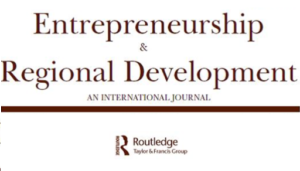Episode 130 – Constance Banc – The legitimacy of corporate accelerators within entrepreneurial ecosystems: perceptions of supported entrepreneurs
Entrepreneurial ecosystems (EEs) are changing as funding for traditional support structures is reduced and large corporations are running corporate accelerators (CAs). These new support organizations are struggling to survive and address challenges of legitimacy. However, research on EEs has not yet investigated the conditions of their existence from an ecosystemic perspective. Drawing on neoinstitutional theory…
Read More
